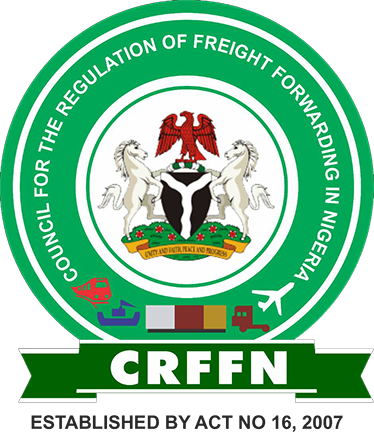Oluyinka Onigbinde
The government’s decision to cease funding the Council for the Regulation of Freight Forwarding in Nigeria (CRFFN) has raised concerns over the future of regulatory oversight and developmental initiatives within the industry.

This is even as stakeholders in the maritime sector have expressed divergent views over the government decision to stop funding CRFFN.
Shipping Position Daily recalls that the Federal Government, as part of its new fiscal measures, has proposed ending its financial support for professional bodies across various industries, including the CRFFN.
Under the new arrangement, professional bodies will be required to generate their own revenue to sustain their operations and activities. This decision, the government said will reflect a broader strategy to reduce dependence on public funding and encourage self-sufficiency within professional organizations.
Recall that the CRFFN, established to regulate and professionalize freight forwarding profession, has played a pivotal role in ensuring standardization, promoting trade facilitation, and enhancing the efficiency of cargo movement across the country. However, with the government’s decision to halt funding, uncertainty now hangs over the organization’s ability to carry out its mandate effectively, leaving industry stakeholders grappling with the potential consequences of this abrupt policy.
But, in a recent chat with our correspondent, a former Director of Regulations and Enforcement of CRFFN Mr. Basil Opara argued that stopping budgetary provisions for the CRFFN will be dangerous, He cautioned that withdrawal of government funding will create significant financial challenges for the Council. He posited that the council heavily relies on government funding to carry out its regulatory functions, while noting that if not for Federal Government intervention, the Council would have gone into extinction since 2015.
According to him: “Well, it is dangerous to the Council. If not for Federal Government intervention on funding, CRFFN would have gone into extinction by 2015. Remember the Oronsanye panel has pronounced that CRFFN should not be funded from Federal Purse from 2015 until President Muhammadu Buhari came into power and suspended the policy. So stopping the funding may affect the Council”.
He however urged the governing council members and the management of CRFFN to take the bull by the horn, urging them to proactively explore avenues for self-sustainability.
“The board and management of CRFFN should take the bull by the horn, now that there is no more funding; they should explore extensively the financial provisions in the Act, because necessity they say is the mother of invention”, he said.
On his part Head Research at Sea Empowerment and Research Center, Mr Eugene Nweke emphasized that the cessation of government funding would not have a negative impact on CRFFN’s administration.
He referred to the Oronsanye panel report, which recommended that agencies and ministerial commissions unable to sustain themselves financially should be scrapped. Mr. Nweke acknowledged the government’s previous interventions, but applauded the new direction, stating that it was time for professionals in the industry to organize themselves and comply with the provisions outlined in the Act. He viewed the government’s decision as a wake-up call for CRFFN to establish financial independence and enforce regulations.
“It does not have any negative impact on the CRFFN administration. I will give you a background under President Goodluck Jonathan, the Oronsanye report recommended that any agencies and ministerial commission that cannot be self-funding should be scrapped. It was you people (the journalists) that said it will affect agencies like Nigeria Shippers’ Council.
“So, to CRFFN, the intent of our act is very obvious; it’s an act to regulate individuals or Nigerians seeking to practice freight forwarding in Nigeria. It’s a professional regulatory Council, now the issue is, if anything has been provided in government scheduled about intervention, you know the government has been doing this intervention all along, but now the government says we can no longer intervene, go and fund yourselves we have done enough.
“We should be clapping hands for the government, because they have done enough, they have helped us establish structures, good structures, we are very grateful for that. Now they’ve given us what I call a wake-up call. We are supposed to go back as professionals put our house in order and start projecting ourselves in line with the Act which states our source of income and provide sanctions through regulations, so it’s a welcome development.
Similarly, Mr. Adeyinka Bakare, a former Governing Council member of CRFFN, expressed the belief that the council should be able to operate without government budgetary provisions. He urged the council to adapt and face the challenge of self-funding head-on.















